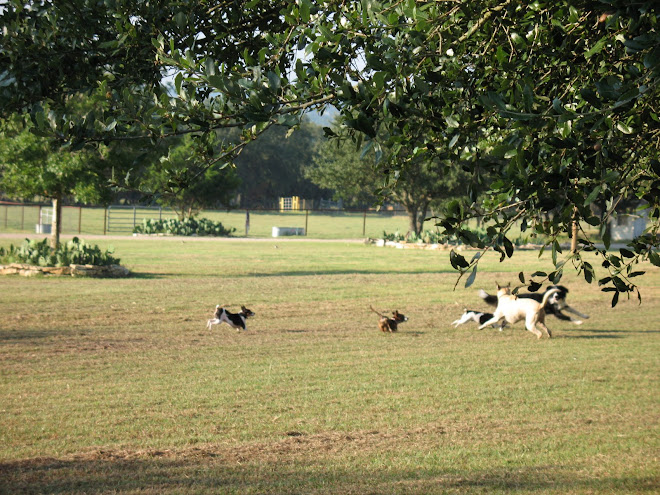We are very careful about integrating a new horse into a pasture. As a boarding facility we must take into account the obvious factors: the age, gender, physical ability and disposition of the horse, the value of the horse, plus the ability of the owner to stomach an accident. Because the first days a horse is in a new place is when accidents usually happen.
We begin by evaluating the horse and his disposition. We don't mix mares and geldings here. Doing so aggravates an already delicate process because the horses must decide their place in the pecking order PLUS their reproduction opportunities. Even though geldings are known to put eating and pleasing their owners before reproduction, they have not forgotten the genetic advantage to having close contact with the dominant (and thus genetically preferable) mare. So upon being introduced into a group that includes mares, he will prioritize access to the stronger mares which often will result in a fights with the other geldings in the group. So no mixing genders.
I have seen an apparently docile gelding chase and bite another less dominant gelding all day long. This is very dangerous. So it's important to know how late in life the horse was gelded. Also important to know the history of the horse's position in other herds.
We usually put the horse alone in a pasture with safe fencing between he and his future pasture mates. Sometimes it's obvious there won't be much trouble within an hour or two so we transition him the same day to his permanent place. But if he is squealing (a sign of lack of security in the top spot) and pawing, running or pacing the fence, we wait. Basically, we wait until none of the horses are paying any attention to each other at all. Sometimes this takes a week. If possible, we integrate one of the horses from the other pasture with him so that they can establish herd placement between them. This also gives him an opportunity to make a friend and not be entirely ostracized from the new group.
Eventually, we put them all together. We do this on a day we are working in site range so that we can watch for any issues. We often close off small spaces like the 12 x 12' corrals we use to separate them to eat. This prevents them from pinning one another in the small space to have a kick fest.
Just because they don't have trouble the first few days together doesn't mean they are a match. I have had horses turn on the new horse or the new horse turn on the lead horse after two weeks together. I don't stop close watch for a month or so.
Mostly, they can figure out how to navigate living in a pasture together as long as the pasture is roomy, they are fed separately and the owner doesn't freak of they get a mild injury or two.
Thursday, January 3, 2008
Subscribe to:
Post Comments (Atom)




No comments:
Post a Comment